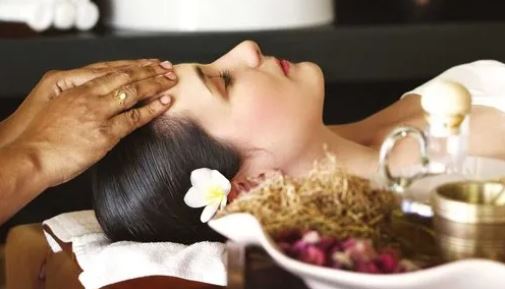A Critical Review on Stress Management through Ayurveda
DOI:
https://doi.org/10.21760/jaims.9.9.16Keywords:
Mansika Roga, StressAbstract
In today's competitive society, everyone is rushing about day and night to be the greatest in their own terms. There are a lot of demands, goals, chores, deadlines, frustrations, and annoyances in life that results into the various stress related disorders like hypertension, irritable bowel syndrome and behavioral disorders like Oppositional defiant disorder, Conduct disorder, Attention-deficit hyperactivity disorder. Stress is a state of worries or mental tension caused by a difficult situation. Both the body and the psyche are impacted by stress. Stress in moderation can be beneficial and even useful in carrying out daily tasks. But excessive stress can leads to problems with mental and physical health. In ayurveda stress is referred to as a root cause of Krodha. Krodha arises due to practice of Raktakopak Nidan which vitiate Raja Guna causing stress. Ayurveda emphasize on maintaining a healthy balance between mind and body. Today's altered human lifestyle is interfering with the balance and is a major source of stress. A balanced diet, yoga, meditation, and physical activity may be helpful in reducing stress. It purges on all levels - physical, mental, and emotional - and is similar to rejuvenation. Ayurvedic management for stress include Nidanparivarjan, Yoga, Nidra, Dincharya, Rritucharya, Sadvrut, Naishthiki Chikitsa (Satvavajaya Chikitsa) and Aushadh Sevan.
Downloads
References
https://www.ncbi.nlm.nih.gov/pubmed/21 267360- Rao TSS, India V. Work, family or personal life; why not three? Indian J Psychiatry 2010; 52; p.295-7
Sharma, Ram, Karan, Das, Vaidya, Bhagwan.(2009). Charaka Samhita of Agnivesa, Editor, (1st Ed.), Vol. I Sutra Sthan; Dhirghanjeevitiya Adhyaya: Chapter 1, Verse 42. Varanasi: ChaukhambaKrishnadas Academy, 25.
Singh, R.H. (1986). Ayurvediya Manas Vigyan, Editor, (1st Ed.), Ayurvediya Manas Vigyan Adhyaya: chapter 2. Varanasi: Chaukhamba Amarabharati Prakashan,pp 58.
Sharma, Ram, Karan, Das, Vaidya, Bhagwan.(2009). Charaka Samhita of Agnivesa, Editor, (1st Ed.), Vol. I Sutra Sthan; Dhirghanjeevitiya Adhyaya: Chapter 1, Verse 42. Varanasi: Chaukhamba Krishnadas Academy, 25.
Kaviraja Ambikadutta Shastri, Sushruta Samhita of Maharshi Sushruta, Sharira Sthana 1, Chaukhambha Sanskrit Samsthana, Varanasi, Rerint Edition 2011, pp 8-9.
Sharma, Ram, Karan, Das, Vaidya, Bhagwan.(2009). Charaka Samhita of Agnivesa, Editor, (1st Ed.), Vol. I Sutra Sthan; Dhirghanjeevitiya Adhyaya: Chapter 1, Verse 42. Varanasi: Chaukhamba Krishnadas Academy, pp 25
Shri Satya Narayan Shastri, Charak Samhita of Agnivesha revised by Charaka & Dridhbala, Chikitsha Sthana , Chaukhambha Bhartin Acedamy, Reprint edition 2013, pp 305
Sushruta samhita (with English translation of text and Dalhana‘s commentary along with critical notes).Varanasi: Chaukhambha Visvabharti; 2004.
Shastri Kashinath, Chaturvedi Gorakhnath edited Charak Samhita of Agnivesha, Revised by Charaka and Dridhabala, Part I, Chaukhamba Bharati Academy, Varanasi, Reprint., 2004; Sutra Sthana 11/54: P-238.
Charaka Samhita of Agnivesha, revised by Charaka and Dridhabala with the Ayurveda – Dipika commentary of Chakrapanidatta, edited by Vaidya Jadavji Trikamji Acharya, Munshiram Manoharlal Publishers pvt. Ltd. Fifth edition 1992, Su 11/54
Shastri Kashinath, Chaturvedi Gorakhnath edited Charak Samhita of Agnivesha, Revised by Charak and Dridhabala, Part I, Chaukhamba Bharati Academy, Varanasi, Reprint., 2004; Sutra Sthana 11/54: P-238.















